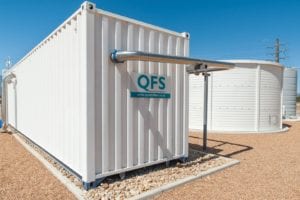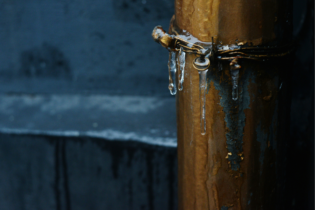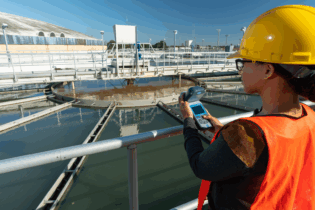Groundwater extraction and desalination are some of the interventions being implemented by water-scarce regions. The next step is to ensure potable water quality, which requires specialist technologies and expertise, areas where Quality Filtration Systems (QFS) has years of project experience.
By securing the contract to provide an emergency desalination plant for the Victoria & Alfred (V&A) Waterfront in Cape Town, QFS addresses the increasing water demands of the metropolitan region.
The project involved the supply, installation and commissioning of a fully containerised 2 MLD seawater reverse osmosis and multimedia filtration plant, delivered under a rental contract for a minimum duration of 24 months.
Following the City of Cape Town’s need to augment severely restricted potable water supplies, the collaboration of QFS and Osmoflo on this project will help to bring fast relief to the severe water shortages in the area.
QFS has been building membrane plants since 1999 and focuses on membrane-based water treatment for seawater desalination, wastewater reuse and brackish water treatment.
“The V&A desalination project feels like the culmination of years of promoting membrane equipment for the treatment of potable water and wastewater,” says Herman Smit, MD at QFS. “It is satisfying to use our 21 years of experience to contribute to the Cape Town augmentation programme for some relief during the drought.”
The importance of water security
Water security is categorised into three different levels. The first level is for drinking, cooking and sanitation. The second focuses on agriculture, and the third on the environment.
First-level case study: Val de Vie estate
The problem: With Day Zero fast approaching at the time, the management of the Val de Vie estate in Franschhoek had to formulate a plan to counter the severe drought conditions being experienced.
The solution: In 2017, QFS was awarded the contract to design, manufacture, install and run a completely off-grid automated (1.5 MLD) water filtration plant for Val de Vie. This would also alleviate the pressure on municipal infrastructure.
The plant was designed and manufactured as a modular, two-containerised system consisting of one 12 m and one 6 m container. The 6 m unit houses the water pumps and chemical dosing equipment. The water pumps are all in a duty/standby configuration. This built-in redundancy ensures plant uptime. In turn, the 12 m high-cube container houses the filtration equipment, electrical cabinets and the fully automated computerised control system.
The plant is fed by eight boreholes scattered across the Val de Vie landscape, which are fully automated and controlled by the main plant.
The flow, level and pressure of each borehole are closely monitored and the information is sent via microwave radio to the automation system. A complex algorithm is used to ensure that water is extracted from the ground in an efficient and responsible manner.
Quality inspections, and chemical and microbial analyses by a SANAS-approved laboratory ensure that the water meets and exceeds all safety and quality specifications.
The outcome
By making use of state-of-the-art technology, proven engineering principles and excellent workmanship, QFS has ensured water security for the residents of Val de Vie for many years to come.







